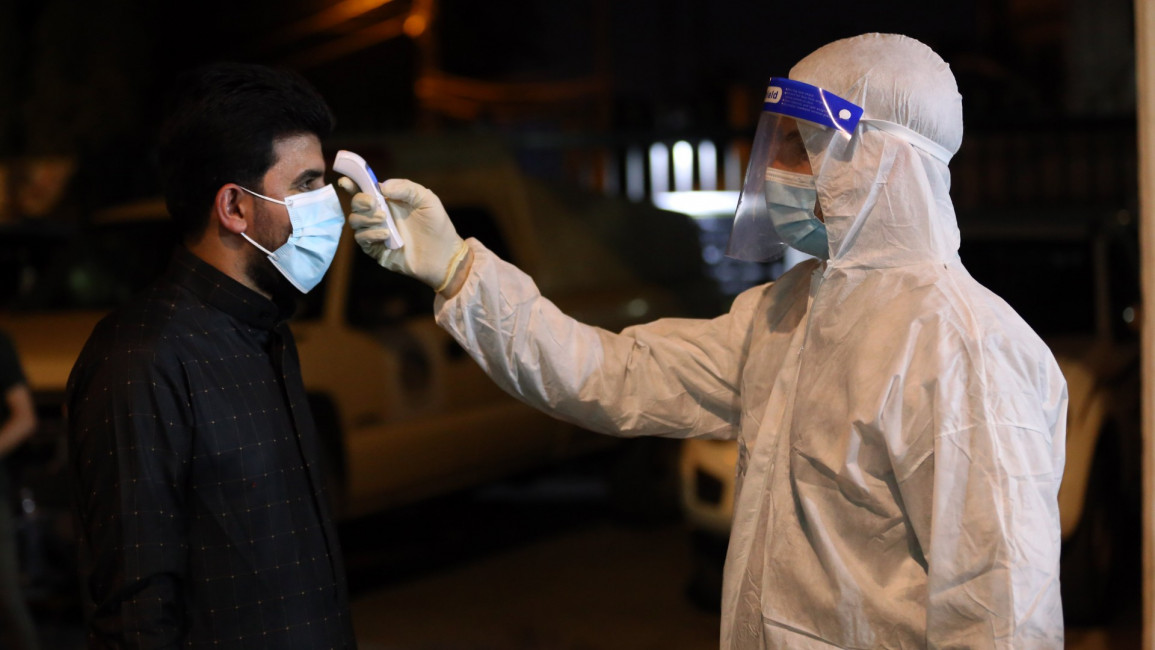Follow us on Facebook, Twitter and Instagram to stay connected
Coronavirus pandemic increased poverty in Iraq by 10 percent says UN envoy
Jeanine Hennis-Plasschaert told the UN Security Council that the pandemic had disrupted studies for over 11 million school and university students across Iraq and led to the doubling of reported incidents of gender-based violence "amid dwindling options for victims to seek assistance and find shelter".
On the economic front, she said oil-rich Iraq is expected to experience a 9.7 percent decline in GDP, mainly as a result of the steep crash in crude prices since the pandemic began, which has cut oil revenues nearly in half.
In addition, Hennis-Plasschaert said, the private sector, which “remains hindered by a lack of reforms,” has been especially hard hit by Covid-19-related job losses. The resulting fall in non-oil economic growth comes at a time when the country is “in dire need of economic diversification,” she said.
Hennis-Plasschaert also stressed that “corruption remains endemic, and its economic cost untold as it continues to steal desperately needed resources from the everyday Iraqi, eroding investor confidence.”
Iraq faced historic mass anti-government protests last October over rampant government corruption, poor services and unemployment, which led to hundreds of deaths as Iraqi forces used live ammunition and tear gas to disperse crowds. The demonstrations brought trust in the government to a new low.
A new prime minister, Mustafa al-Kadhimi, assumed office in May facing a myriad of crises. State coffers were slashed following the severe drop in crude oil prices, adding to the woes of an economy already struggling with the aftershocks of the pandemic.
Al-Kadhimi’s administration set a lofty agenda that included enacting economic reform, battling corruption, avenging protesters and bringing arms from rogue Iranian-backed militia groups under the authority of the state.
But three months into his administration protests by pensioners stymied plans to cut state salaries, virus cases continue to reach record highs, and militia groups taunt the government with near daily rocket attacks targeting Iraqi bases and the heavily fortified Green Zone, home to many embassies and government offices.
Hennis-Plasschaert told the Security Council that the government “is undoubtedly operating in the eye of multiple storms at once.”
She said painful reforms are essential “to unlock a brighter future for all Iraqis” but so far its political leaders have shown too little of the “spirit" needed to come together, prioritise the country’s interest and protect the vulnerable.
|
“Of great concern is another spike in the killings and targeting of activists and human rights defenders,” Hennis-Plasschaert said. “The silencing of peaceful voices - by exerting pressure on activists and media, by confusing the scene or even worse, by shedding blood – is an affront against basic rights and dignity.”
She said the UN is “cautiously encouraged” by government statements and some early moves toward greater accountability, support for freedom of expression and assembly, and commitment to justice. But she said action is urgently needed, noting that “partisanship and short-sighted zero-sum politics continue to be major obstacles for progress.”
Hennis-Plasschaert said Islamic State extremists are “benefiting from internal divisions, exploiting security gaps," and continuing deadly attacks.
UN counter-terrorism chief Vladimir Voronkov told the council Monday that more than 10,000 Islamic State fighters are estimated to remain active in Iraq and Syria two years after the militant group’s defeat, and their attacks have significantly increased this year.
Hennis-Plasschaert said the government met a key demand of protesters by scheduling early elections on June 6, 2021. She urged Parliament to decide the crucial questions o apportioning seats and delineating constituencies on technical grounds, “not partisanship.”
US political coordinator Rodney Hunter told council members the Trump Administration plans to announce $10 million in funding for the UN mission to “bolster Iraqi efforts to hold free and fair elections.”
He said the U.S also recently announced nearly $204 million in additional humanitarian assistance for Iraqis and Iraqi refugees in the region and the communities hosting them, bringing US aid to more than $706 million since Oct. 1, 2019.
Iraq’s prime minister met President Donald Trump last week and Hunter reiterated the administration’s message that “Iran wants to sow chaos and mistrust across the region,” including in Iraq, and “the United States will not allow that to happen.”’
Russia’s deputy UN ambassador Dmitry Polyansky responded, telling the council Iran is not to blame for destabilising Iraq. He pointed to “the well-known position of president Trump who called the Iraq war 'the worst geopolitical mistake of our generation’’”.
Polyansky said Russia is concerned about “efforts to artificially increase tensions around Iran” and said a collective security body in the Persian Gulf “is increasingly in demand.”



